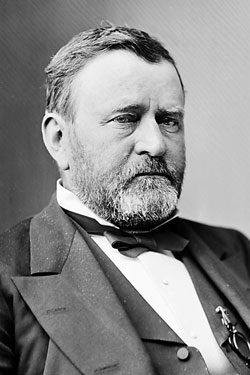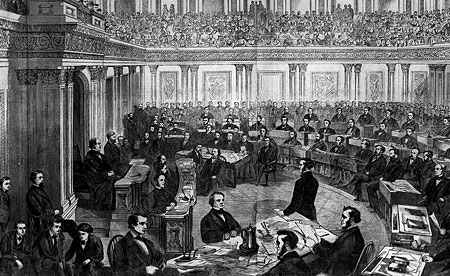Reconstruction Act of 1867
Congress overrode the president’s veto and then used the power to amend the Constitution and pass the Fourteenth Amendment that defined citizenship and guaranteed equal protections and due process to all American citizens, including freed black Americans. The Amendment also made it very hard for former Confederate officials to hold state or federal office. The Fourteenth Amendment’s guarantees did not apply to private entities; hotels, stores, theaters, and railroads continued to segregate.
Amendment XIV (Fourteenth Amendment)
The Fourteenth Amendment was passed by Congress in June 13, 1866, and was ratified July 9, 1868. Note: Article I, Section 2, of the Constitution was modified by Section 2 of the Fourteenth Amendment.
Section 1: All persons born or naturalized in the United States, and subject to the
jurisdiction thereof, are citizens of the United States and of the State wherein they reside. No State shall make or enforce any law which shall abridge the privileges or immunities of citizens of the United States; nor shall any State deprive any person of life, liberty, or property, without due process of law; nor deny to any person within its jurisdiction the equal protection of the laws.

Ulysses S. Grant
Angered by violence against blacks across the South and Johnson’s reluctance to support civil rights for black Americans, Congress passed the Reconstruction Act of 1867 and voted to impeach Johnson in 1868. Johnson escaped impeachment, but Ulysses S. Grant was elected president in 1868. With the ratification of the Fourteenth Amendment and a radical plan for reconstruction, the stage was set for federal troops to be stationed across the South and federal power to override states’ rights. Blacks were elected to state and federal legislatures as the Fifteenth Amendment was ratified in 1870, guaranteeing black Americans the right to vote.

Depiction of the Impeachment Trial